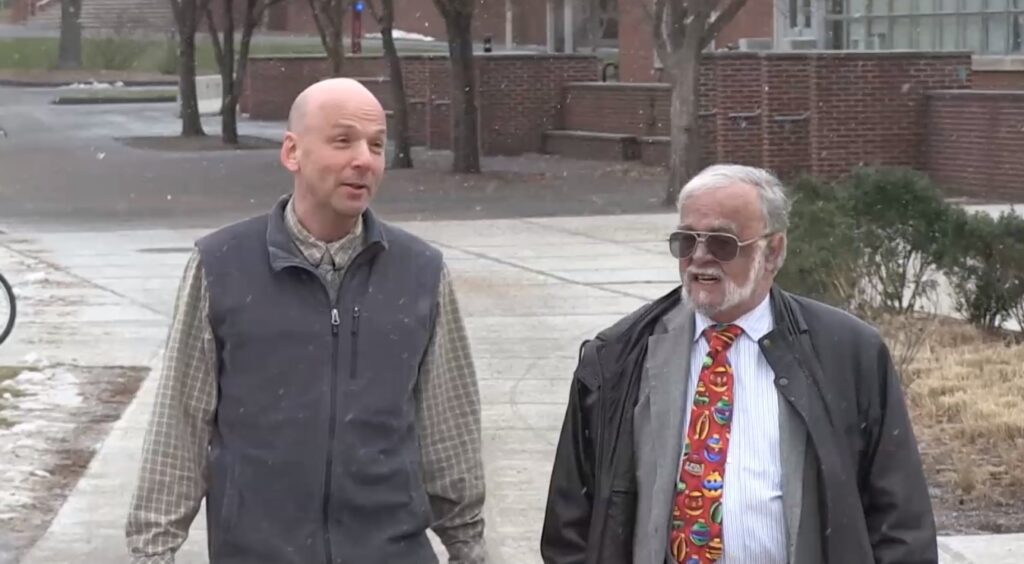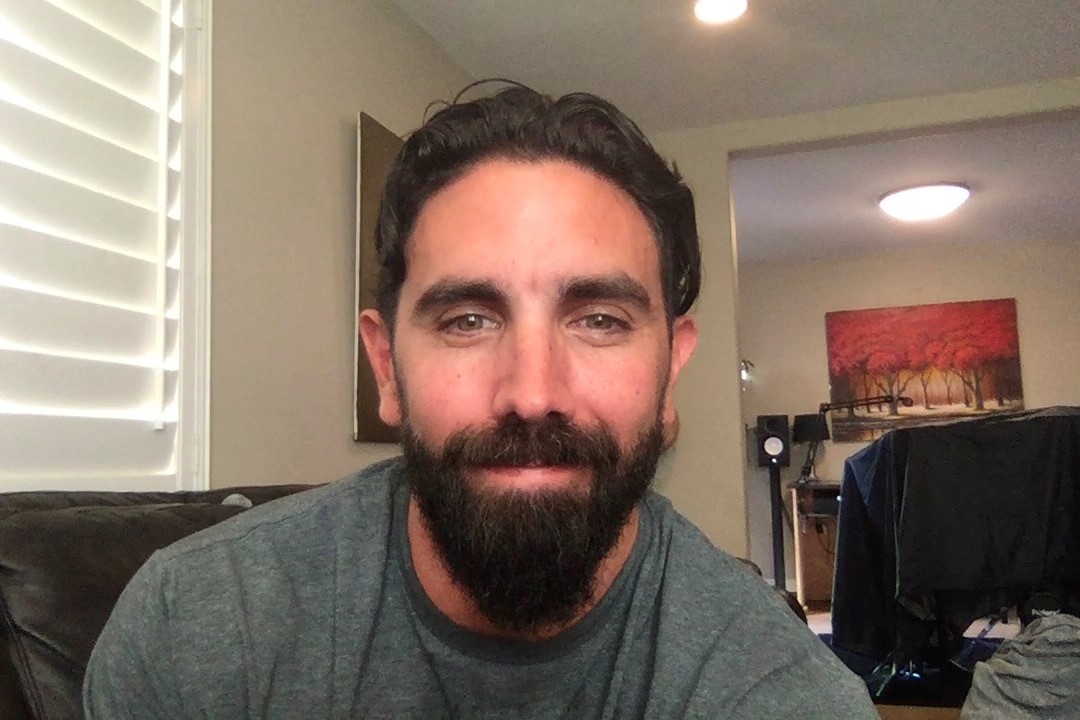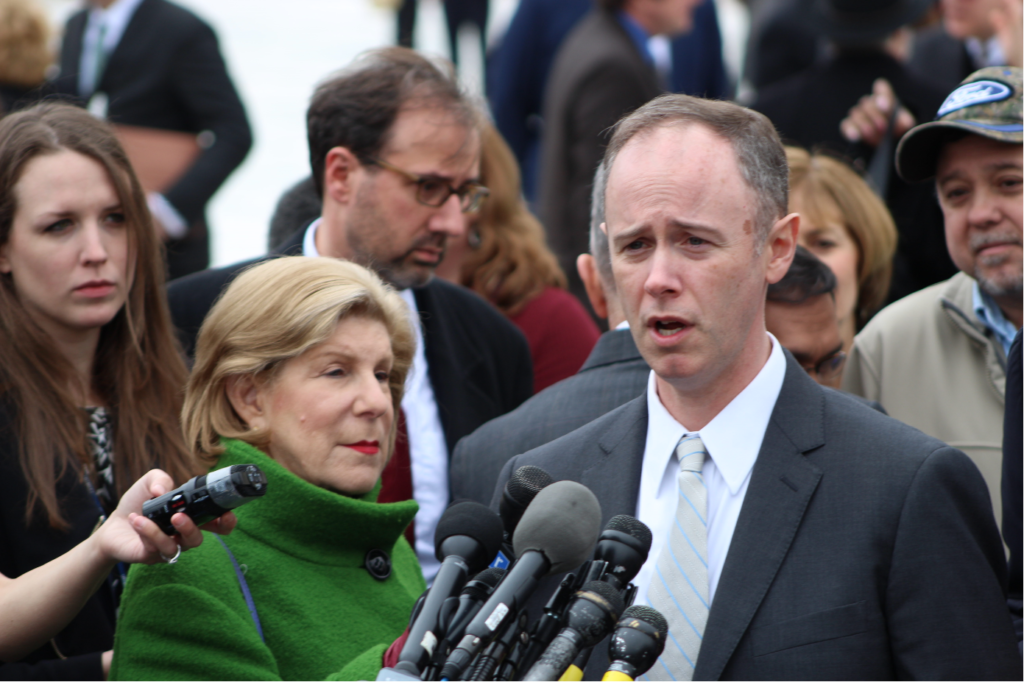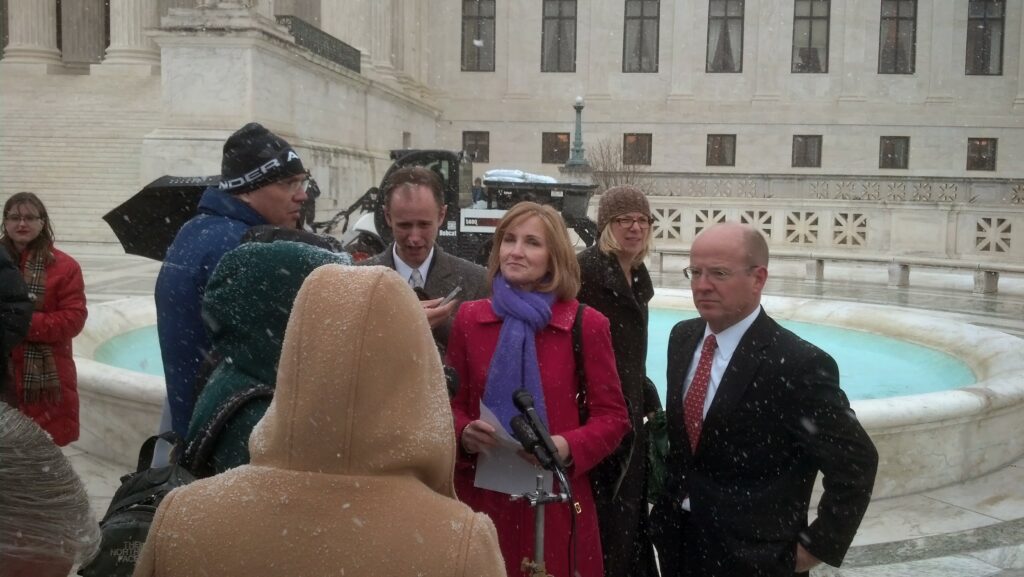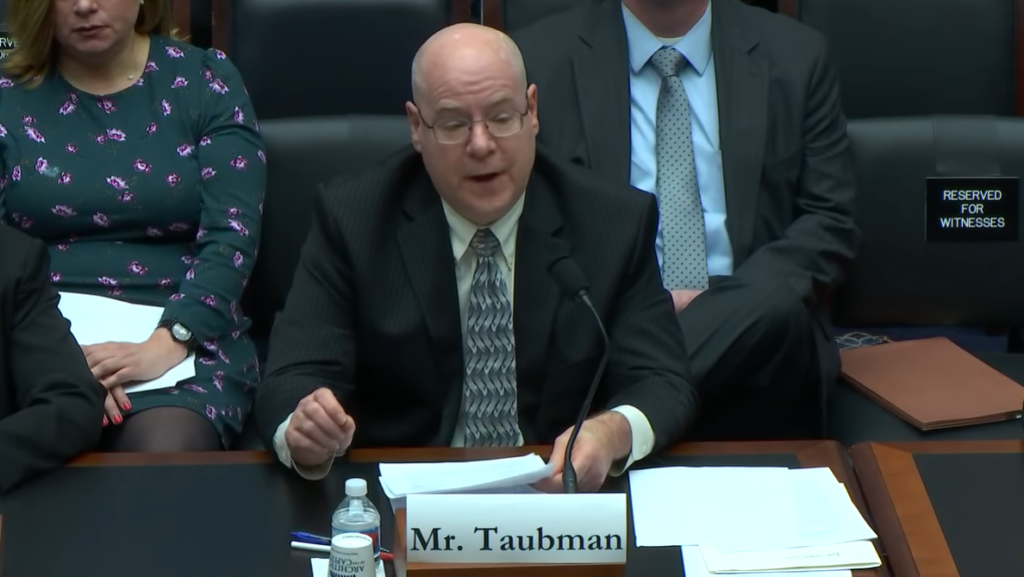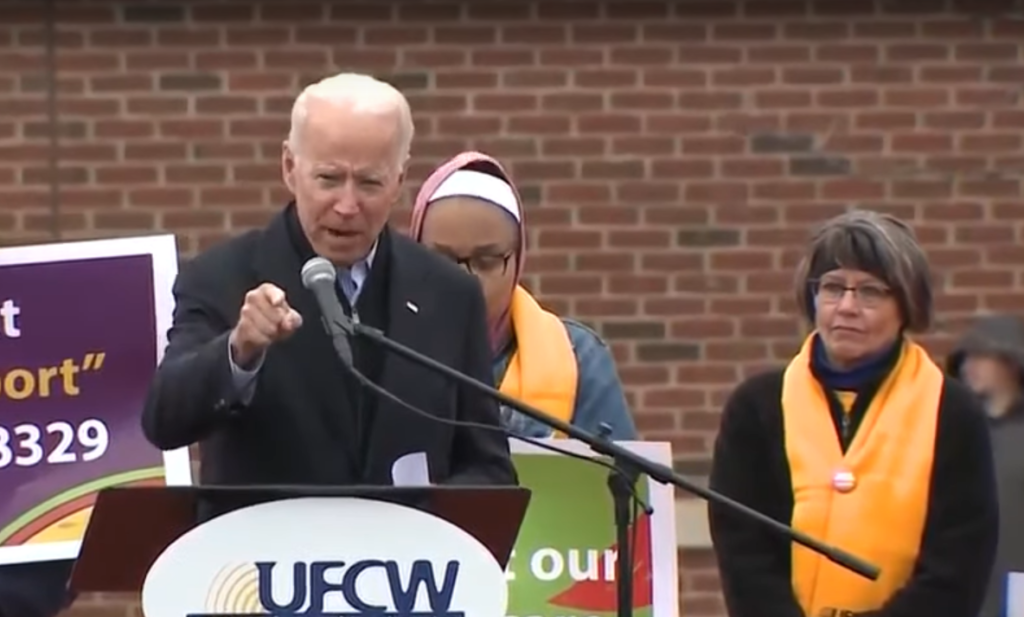Foundation Defends Medicaid Providers from Big Labor Dues Skimming Schemes
The following article is from the National Right to Work Legal Defense Foundation’s bi-monthly Foundation Action Newsletter, September/October 2019 edition. To view other editions or to sign up for a free subscription, click here.
Union bosses and allied states defy Foundation-backed federal protections for homecare providers
Under Harris v. Quinn, brought for plaintiff Pam Harris (right) who cares for her son Josh in their home, providers cannot be required to pay union dues; however union bosses continue to skim dues from Medicaid funds in violation of federal law.
SAN DIEGO, CA – At the urging of the National Right to Work Foundation and comments filed by over 1,200 Foundation supporters, the Department of Health and Human Services (HHS) recently issued a rule that closed an Obama-era loophole allowing union bosses to skim over $1 billion in union dues and fees from Medicaid payments intended for providers.
Unsurprisingly, union bosses are refusing to accept this rule and comply with federal law. As a result, Foundation staff attorneys have ramped up legal action in an effort to force Big Labor to end its unlawful schemes to divert union dues from payments to Medicaid providers.
Foundation Files Class Action Lawsuit for California Homecare Providers
With free legal aid from National Right to Work Foundation staff attorneys and the West Coast-based Freedom Foundation, a group of California homecare providers filed a class action lawsuit after union officials continued seizing union dues from their Medicaid payments.
The providers allege in their suit that the deduction of union dues from their Medicaid payments violates the provision of the federal Medicaid statute that prohibits the diversion of Medicaid monies to persons or institutions that are not providing services to disabled individuals.
Union officials used a special exemption to Medicaid regulations granted to them by the Obama Administration in 2014 as legal cover for this skim scheme.
In August 2018, the National Right to Work Foundation submitted formal comments to U.S. Centers for Medicare & Medicaid Services (CMS) supporting the agency’s proposal to clarify that the diversion of Medicaid payments from providers to third parties, including unions, violates federal law. Those recommendations were adopted in early May and were set to go into effect on July 5, 2019.
In addition to violating federal Medicaid law, the providers charge union officials with violating their legal rights by unlawfully restricting them from stopping payment of union dues and fees, as is their right under the landmark Foundation-won Harris v. Quinn and Janus v. AFSCME decisions by the U.S. Supreme Court.
When the providers attempted to exercise their legal rights under Harris and Janus to refrain from financially subsidizing a union and cut off any further dues or fees deductions, union officials refused to honor their requests. Despite the lack of valid consent by providers, the California State Controller, at the behest of American Federation of State, County and Municipal Employees (AFSCME) union officials, continued to deduct union dues from the Medicaid funds intended for providers.
“Once again union bosses have ignored federal law, legal precedent and the clear wishes of the workers they claim to ‘represent’ simply to line their pockets with compulsory dues,” said National Right to Work Foundation Vice President Patrick Semmens. “Instead of informing workers of their First Amendment rights and allowing them to choose whether to pay dues to a union voluntarily, union officials nationwide are attempting to trap workers into paying forced dues.”
Medicaid Providers Move to Defend Rule Ending Illegal Union Medicaid Skim
In a separate legal action, ten Medicaid providers, with free legal aid from the National Right to Work Foundation and the Freedom Foundation, moved to intervene in a recently filed federal lawsuit challenging the rule adopted by HHS. The providers support the Trump Administration’s rule because it helps to protect their right not to fund union activities in violation of their First Amendment rights. They argue repealing the rule would result in their legal rights being violated.
AFSCME and Service Employees International Union (SEIU) officials and the pro-Big Labor Attorneys General of California, Connecticut, Oregon, Massachusetts, and Washington State filed this challenge to the Trump rule in May.
Although a federal circuit court judge denied the providers’ motion to intervene, the judge granted National Right to Work Foundation staff attorneys the ability to file a brief in the case. The providers’ Foundation staff attorneys can appeal the decision to deny the providers’ motion to intervene should the judge rule against the Trump Administration and strike down the rule.
“Providers are right to oppose this lawsuit’s blatant attempt to enable union bosses to skim union dues in violation of federal law and deserve a voice in this lawsuit,” said Semmens. “The hysterical response by Big Labor and its political allies to this simple clarification of longstanding federal law suggests they are worried that many members union officials claim to represent won’t pay dues once they realize they have a choice.”
Supreme Court Asked to Hear Challenge to Monopoly Bargaining Scheme
The following article is from the National Right to Work Legal Defense Foundation’s bi-monthly Foundation Action Newsletter, September/October 2019 edition. To view other editions or to sign up for a free subscription, click here.
Massachusetts educators can only affect their working conditions if they waive their First Amendment rights
Plaintiffs Dr. Andre Melcuk (left) and Dr. Wm. Curtis Conner (right) asked the U.S. Supreme Court to hear their case challenging Massachusetts’ government union monopoly bargaining scheme as a violation of their First Amendment rights.
WASHINGTON, D.C. – In July staff attorneys for the National Right to Work Legal Defense Foundation asked the U.S. Supreme Court to hear Branch v. Commonwealth Employment Relations Board, a lawsuit brought by four Massachusetts educators challenging the application of the state’s union monopoly bargaining law as a violation of their constitutional rights.
The educators argue that the state law, which is manipulated by union bosses to block teachers who are not union members from voting or otherwise voicing their opinions in the determination of their own working conditions, illegally deprives non-member teachers of their First Amendment rights.
Plaintiffs Say NEA Teacher Union Bosses Violated First Amendment Rights
The four plaintiffs hail from the University of Massachusetts and the Hanover School Committee. Each has their own reasons for rejecting membership in the National Education Association (NEA) and its local affiliates. While the 2018 Foundation-won Janus v. AFSCME Supreme Court decision guarantees that union fees and membership are strictly voluntary for all public sector workers, the policy in question unconstitutionally forces them to become full union members just to be able to impact their work environment.
To have any say in their own work conditions, non-members like the four educators would have to waive their First Amendment rights under Janus and join the union, which means paying full union dues and funding union boss political activities.
Four Massachusetts Educators Ask Supreme Court to Apply Janus Precedent
The lead plaintiff, Dr. Ben Branch, is a longtime finance professor at the University of Massachusetts Amherst. He is a colleague of fellow plaintiff Dr. Wm. Curtis Conner, who teaches chemistry there.
Plaintiff Dr. Andre Melcuk is Director of Departmental Information Technology at the Silvio O. Conte National Center for Polymer Research at the University. Dr. Melcuk was born in the Soviet Union and opposes the union based on his dislike of collectivist organizations.
Plaintiff Deborah Curran is a long-term teacher in the Hanover Public Schools system. The union officials who supposedly “represent” her attempted to invalidate her promotion to a position mentoring new teachers and pushed to have her investigated and suspended. She ultimately spent nearly $35,000 of her own money battling union officials just to protect her job.
The petition comes after the Massachusetts Supreme Court decided the case against the group in April.
“The Massachusetts Supreme Court’s refusal to apply the Janus ruling has left these educators facing a legally untenable situation: Either they can avoid associating with a union with which they disagree and lose their voices in the workplace, or they can waive their Janus rights and have their money used for ideological causes they oppose,” commented National Right to Work Foundation President Mark Mix. “The state of Massachusetts is forcing these educators to fund state legislators’ union political allies if they want even the most limited participation in the government created bargaining process that controls their conditions of employment.”
“Such schemes border on extortion and it’s time for courts to acknowledge it,” added Mix.
Foundation Aiding Employees Nationwide to End Restrictions on Janus Rights
The following article is from the National Right to Work Legal Defense Foundation’s bi-monthly Foundation Action Newsletter, September/October 2019 edition. To view other editions or to sign up for a free subscription, click here.
California math professor wins refunds of illegal dues deductions as more lawsuits are filed
Foundation staff attorneys are currently litigating more than 30 cases to enforce workers’ Janus rights, which have yielded successful settlements and dues refunds for employees like math professor Michael McCain.
VENTURA, CA – National Right to Work Legal Defense Foundation staff attorneys are fighting nationwide in courts to ensure that public sector employees from every walk of life can exercise their First Amendment rights under the Janus v. AFSCME decision, which in 2018 eliminated union dues and fees as a condition of employment for all public sector workers and permits dues deductions only with the affirmative consent of an employee.
Obstinate union bosses have thrown up many roadblocks to prevent the workers they claim to represent from exercising those rights, often enforcing illegal “window periods” where workers can only cut off dues within a tiny, union boss-determined time period once every year or few years, and refusing to return dues seized in violation of workers’ First Amendment rights before or even after the Janus decision came down.
In California, Foundation attorneys recently secured a successful settlement for Michael McCain, a math professor in the Ventura County Community College District (VCCCD). American Federation of Teachers (AFT) union officials forcibly took several months’ worth of illegal dues from McCain after he tried to resign his union membership in the wake of the Janus decision.
The AFT officials argued that McCain had missed the so-called “window” to resign, even though his dues authorization card made no mention of this rule. Foundation attorneys countered that the AFT’s restrictive policy constituted a “violation of [McCain’s] First Amendment right not to subsidize union activity without [his] affirmative consent and known waiver of that…right, as recognized by the U.S. Supreme Court in Janus v. AFSCME.”
Citing Janus, Foundation staff attorneys filed a class-action lawsuit to stop the illegal policy and to secure refunds for McCain and other VCCCD teachers of “dues deducted . . . without their affirmative and knowing consent.”
Successful Foundation Settlement Wins Refunds for All Affected Professors
Rather than face off against Foundation attorneys and the Janus precedent in court, VCCCD and AFT officials settled the case. Union officials will now “fully and unconditionally” refund to McCain and other teachers who asked to stop paying union dues since Janus was decided all dues illegally taken since the dates of their requests, plus interest.
Additionally, AFT and VCCCD are required by the settlement to not “adopt any policy that restricts to a yearly window period the time” when an employee can revoke his or her dues authorization.
“Union boss schemes like annual ‘escape periods’ serve no purpose other than to continue the flow of illegal dues into union coffers,” observed National Right to Work Foundation President Mark Mix. “All American workers deserve the freedom that Janus promises.”
Though several Foundation lawsuits have yielded favorable settlements and promises to abide by Janus from union bosses even in states like California with heavily ingrained forced unionism laws, Foundation attorneys are fighting for precedents at federal courts that will wipe out union boss schemes meant to thwart Janus.
UConn Professor Receives Over $5,000 in Post-Janus Settlement
The following article is from the National Right to Work Legal Defense Foundation’s bi-monthly Foundation Action Newsletter, July/August 2019 edition. To view other editions or to sign up for a free subscription, click here.
Foundation-backed rule clarification takes aim at SEIU’s illicit $100 million per year money grab
Rather than face Foundation staff attorneys in court, union bosses refunded the forced dues seized from UConn professor Steven Utke in violation of his First Amendment rights.
STORRS, CT – Steven Utke, an accounting professor at the University of Connecticut, has received a settlement for $5,251.48 from American Association of University Professors (AAUP) union officials in his action, claiming the AAUP seized union dues in violation of his First Amendment rights. National Right to Work Foundation staff attorneys forced AAUP to settle after filing a federal lawsuit for Utke.
The case joins other Foundation-won settlements for workers who were forced to pay union fees in violation of their First Amendment rights. Despite those victories, Foundation staff attorneys continue to litigate about 30 other cases, seeking to enforce various aspects of the Foundation’s 2018 Janus v. AFSCME U.S. Supreme Court victory, with more being added every month as workers contact the Foundation seeking to exercise their Janus rights.
Utke started teaching at the University of Connecticut in 2015, and exercised his right to refrain from membership in the AAUP from the beginning of his employment. However, because Connecticut lacks a Right to Work law making union financial support strictly voluntary, AAUP officials began deducting union fees immediately from Utke’s paycheck despite the fact he was not a member.
When the Supreme Court ruled in Janus that requiring public sector workers to pay any union dues or fees as a condition of employment is a breach of the First Amendment, AAUP stopped the compulsory fee deductions. However, AAUP officials did not return the forced fees seized in violation of the First Amendment from the professor prior to the June 2018 Supreme Court decision.
Utke reached out to the National Right to Work Foundation for free legal aid, and on January 14, 2019 Foundation staff attorneys filed a lawsuit for Utke in federal court to force the union officials to refund the money they seized from him without his consent.
In April, rather than face Foundation staff attorneys in federal court, AAUP backed down and settled the case. Now, as stipulated by the terms of the settlement, AAUP officials have paid Utke more than the union fees seized in violation of his rights from 2015 to 2018.
Also as part of the settlement, they are required not to collect any dues or fees from Utke’s future wages, unless he affirmatively chooses to become a member of AAUP and authorizes such deductions.
“Steven Utke’s victory represents yet another landmark in the fight to enforce the Janus decision, but with dozens of additional Janus enforcement cases still pending, much work remains to force Big Labor to comply with the Supreme Court’s decision,” observed National Right to Work Foundation Vice President and Legal Director Ray LaJeunesse. “Foundation staff attorneys will not rest until every worker in America is free to exercise the right to decide whether or not to fund union activities.”
Airline Workers Contest Union ‘Opt-Out’ Requirement for Political Dues
The following article is from the National Right to Work Legal Defense Foundation’s bi-monthly Foundation Action Newsletter, July/August 2019 edition. To view other editions or to sign up for a free subscription, click here.
Union bosses bullied and illegally threatened to discipline employee who defied strike demands
United Airlines fleet service employee Arthur Baisley (left) and JetBlue pilot Christian Popp (right) are challenging union boss “opt-out” rules that make nonmembers pay for union political spending without their consent.
AUSTIN, TX – United Airlines fleet service employee Arthur Baisley and JetBlue Airlines pilot Christian Popp have filed federal lawsuits against the International Association of Machinists (IAM) and Air Line Pilots Association (ALPA) unions, respectively, challenging union officials’ “opt-out” requirements designed to make non-members pay for union political activities without their consent.
Austin, TX-based Baisley and Fort Lauderdale, FL-based Popp filed their lawsuits with free legal aid from the National Right to Work Foundation. Their Foundation staff attorneys argue that the “opt-out” schemes perpetrated by IAM and ALPA bosses violate workers’ rights under the Railway Labor Act (RLA) and the First Amendment under the standard laid out in the landmark 2018 Supreme Court decision Janus v. AFSCME.
“No employee or private citizen should be trapped in a deliberately-complex system that funnels their money into political speech of which they disapprove. Unfortunately, that is exactly what IAM and ALPA union officials are doing to non-member workers across America,” commented National Right to Work Foundation Vice President and Legal Director Ray LaJeunesse.
The lawsuits contend that under Janus and the 2012 Knox v. SEIU Supreme Court case – both of which were argued and won by Foundation staff attorneys – no union dues or fees can be charged for union political activities without a worker’s affirmative consent.
Popp and Baisley, despite working in the Right to Work states of Florida and Texas, must still pay fees to their respective unions as the RLA preempts state law and permits forced dues. But, even in the absence of Right to Work protections, established Supreme Court precedent forbids unions from putting those compulsory fees towards ideological activities like lobbying or politics.
According to the lawsuits, the processes that IAM and ALPA union bosses require independent-minded workers to go through simply to exercise their constitutional right not to fund “nonchargable” activities are convoluted and typically involve having to “decipher” the opt-out requirements of the union.
Even worse, after Baisley submitted a letter to IAM agents in November 2018 objecting to funding all union political activities, the union officials only accepted his objection for 2019, and told Baisley he would be required to renew his objection to full dues and fees the next year or else be charged for full union dues.
The two complaints challenge these union boss-created policies on the grounds that they “require employees to opt-out of paying union fees that they have no legal obligation to pay” and thus violate workers’ First Amendment rights.
The complaints also allege that the “opt-out” requirements violate the RLA, which governs labor in the air and rail industries and “protects the right of employees to ‘join, organize, or assist in organizing’ a union of their choice as well as the right to refrain from any of those activities.”
Both suits are class-action, and seek court orders requiring union officials to ask for affirmative employee consent for any dues charged for political or ideological purposes in the future.
“These lawsuits show that although Janus’ most direct impact was to secure the First Amendment rights of public employees not to be required to fund Big Labor, the implications don’t stop there,” observed LaJeunesse. “Because the Janus decision made clear workers must opt-in to all political and ideological activity, Foundation staff attorneys are able to cite it in defense of airline workers covered by the Railway Labor Act.”
Final Briefs Filed at Appeals Court in Continuation of Janus v. AFSCME
The following article is from the National Right to Work Legal Defense Foundation’s bi-monthly Foundation Action Newsletter, September/October 2019 edition. To view other editions or to sign up for a free subscription, click here.
Foundation seeks first-in-nation appellate court ruling to order non-member dues refunded
Veteran Foundation staff attorney William Messenger, seen here speaking to reporters after Supreme Court oral arguments in Janus, leads the Foundation’s Janus enforcement task force.
CHICAGO, IL – Although Janus v. AFSCME secured a landmark victory at the U.S. Supreme Court for government employees’ First Amendment rights, Mark Janus’ case is not over because AFSCME union bosses have refused to return the funds taken from him in violation of the First Amendment.
Janus’ attorneys from National Right to Work Foundation and Illinois-based Liberty Justice Center have completed briefing with the Seventh Circuit Court of Appeals on the issue of whether union officials can keep money they seized from non-members in violation of their constitutional rights. The case is likely to mark the first time an appellate court will rule on the issue, potentially establishing a precedent that could result in the return of hundreds of millions of dollars seized by union bosses in violation of the Janus precedent.
Janus Secured Workers’ First Amendment Rights
Mark Janus was an Illinois child support specialist whose case was successfully argued at the Supreme Court by National Right to Work Foundation staff attorney William Messenger.
The Supreme Court’s June 27, 2018, decision in Janus’ favor found that any union fees taken from workers like Mark Janus – who was not a member of AFSCME – without the workers’ affirmative and knowing consent violate the First Amendment. Justice Samuel Alito wrote for the majority that compulsory fees “[violate] the free speech rights of non-members by compelling them to subsidize private speech on matters of substantial public concern.”
The Supreme Court sent the case back to the lower courts to determine, among other things, whether Janus is entitled to all the union fees he was forced to pay since March 23, 2013.
Janus’ appeal comes after a district court judge ruled that union officials are not required to refund forced fees seized from non-member workers prior to the Janus decision.
“Just like a thief would not be allowed to keep the money he stole, union bosses must be forced to return funds unlawfully seized from workers,” said National Right to Work Foundation Vice President and Legal Director Ray LaJeunesse. “It would be a massive injustice to deny workers victimized by Big Labor the refunds to which the Supreme Court made clear they are entitled.”
Seventh Circuit Likely First Appeals Court to Rule on Non-member Refunds
Janus will likely be the first case in which an appellate court will evaluate the so-called “good faith” defense that union lawyers have asserted in response to worker lawsuits seeking refunds, arguing that union officials should be allowed to keep funds seized prior to the Janus decision.
This contention has generally succeeded in lower courts despite the Supreme Court asserting that union bosses have been “on notice” for years that mandatory fees likely would not comply with the heightened level of First Amendment scrutiny articulated in the Supreme Court’s earlier Knox v. SEIU decision, also won by Foundation staff attorneys.
Mark Janus is asking the Seventh Circuit to rule that he is entitled to refunds of approximately $3,000 in fees he was forced to pay since March 23, 2013, as the statute of limitations permits. In addition, the case has significant implications for dozens of other cases being litigated around the country for hundreds of thousands of other workers seeking the return of forced fees seized unlawfully by union officials.
Janus Refund Efforts Continue Nationwide
Foundation staff attorneys are currently litigating over a dozen such cases that collectively seek over $120 million in refunds for non-members forced to pay union fees before Janus. Other ongoing lawsuits and potential cases could result in half a billion dollars or more returned to government workers from union treasuries.
“The Janus case is a milestone of worker freedom, but union bosses continue to block workers from exercising their rights and deny workers refunds for dues and fees seized against their wishes,” said LaJeunesse. “We hope the Seventh Circuit Court of Appeals will follow the clear logic of the Supreme Court’s decision in Janus and establish that union bosses cannot profit from violating workers’ First Amendment rights.”
Feds Close Obama-Era Loophole Sanctioning Big Labor Medicaid Skim
The following article is from the National Right to Work Legal Defense Foundation’s bi-monthly Foundation Action Newsletter, July/August 2019 edition. To view other editions or to sign up for a free subscription, click here.
Foundation-backed rule clarification takes aim at SEIU’s illicit $100 million per year money grab
In the 2014 Harris case, the U.S. Supreme Court prohibited union officials from requiring the diversion of Medicaid payments from providers like Susie Watts (center), pictured at the High Court with her Foundation attorney William Messenger (left) and Foundation President Mark Mix (right).
WASHINGTON, D.C. – Spurred by National Right to Work Foundation supporters, the Department of Health and Human Services (HHS) issued a final rule in May, making it clear that the diversion of Medicaid payments from home healthcare providers to union bosses violates federal Medicaid law.
This Foundation-backed rule change closes an illegal loop-hole created by the Obama Administration to provide union officials with legal cover to siphon hundreds of millions of dollars in Medicaid funds into union political and lobbying activities.
As a giveaway to the Obama Administration’s political backers, in 2014, the Obama HHS created a regulation to give legal cover to ongoing schemes by the SEIU and other unions that siphoned off over $1 billion in Medicaid funds.
However, the Medicaid law was clear that taxpayer-funded Medicaid money must go directly to healthcare providers, many of whom care for their own family members in their own homes, and cannot be diverted to third parties. The Obama rule was issued as Foundation staff attorneys were shining the spotlight on the illegal scheme in federal court.
The 2014 Foundation-won U.S. Supreme Court Harris v. Quinn decision held it is unconstitutional for states to force homecare providers paid through Medicaid programs to pay union fees. In Harris, the Court ruled that a scheme imposed by the State of Illinois, in which more than 80,000 individual homecare providers were forced to pay union fees out of the state funding they receive, violated the providers’ First Amendment rights.
Rather than fold up the scheme as a result of the Supreme Court ruling, Obama operatives chose to skirt the law.
The Obama Administration helped Big Labor continue to skim over $100 million per year from healthcare providers by authorizing states to “assign” a portion of providers’ funds directly to union officials.
“The Harris decision, won by the Foundation in 2014, made it illegal for states to require these providers to pay fees to union officials,” said National Right to Work Vice President Patrick Semmens. “But with the help of the Obama Administration, union bosses attempted to undermine that ruling by scheming to continue deducting union dues from Medicaid payments, even from providers who never knew they could not be required to pay.”
When the new administration took office in 2017, a window of opportunity opened to reverse Obama’s giveaways to Big Labor. In 2017, the Foundation formally brought the illegal-dues skim scheme to the attention of the Trump Administration.
Soon after Foundation President Mark Mix personally raised the issue again at a White House meeting in 2018, the Trump Administration issued the proposed rule to make it clear that states cannot allow union bosses to intercept tax dollars intended for Medicaid recipients.
By the August 2018 public commenting deadline, the Foundation filed detailed comments on how the scheme violates the law and how the Trump Administration should fix it. The Foundation also rallied thousands of supporters to petition the Trump Administration to enforce the Medicaid statute by ending the illegal diversion of Medicaid funds into Big Labor coffers.
“This long-overdue rule is another important step forward in protecting the rights of homecare workers from greedy union bosses,” added Semmens. “While the rule will still need to be robustly enforced and Foundation staff attorneys are already preparing to do just that, this decision by the Department of Health and Human Services is encouraging.”
Foundation Staff Attorney Testifies Before Congressional Hearing on Labor Law
The following article is from the National Right to Work Legal Defense Foundation’s bi-monthly Foundation Action Newsletter, July/August 2019 edition. To view other editions or to sign up for a free subscription, click here.
Current labor law is ‘antithetical to American values of free speech and free association’
Veteran Foundation staff attorney Glenn Taubman testified before Congress that current labor law allows union bosses to violate the rights of workers and urged Congress to make union dues payments and association voluntary.
WASHINGTON, D.C. – National Right to Work Foundation staff attorney Glenn Taubman recently testified at a U.S. House of Representatives committee hearing, urging reform of current labor law that hinders American workers from exercising their rights under the U.S. Constitution and National Labor Relations Act (NLRA).
Taubman has represented hundreds of workers in cases before the National Labor Relations Board (NLRB) and in federal court as a veteran Foundation staff attorney.
Given his expertise on labor law, Taubman was asked to be the sole pro-Right to Work witness, testifying before the House of Representatives Committee on Education and Labor Subcommittee on Health, Employment, Labor, and Pensions at its hearing on “The Need for Labor Law Reform.”
Taubman told the House Committee on March 26 that union bosses use current labor law to force millions of private sector workers to accept union monopoly representation just to get or keep a job.
“No worker in America should be threatened with discharge from his or her workplace for refusing to pay dues and fees to a private organization he or she may despise,” Taubman testified. “Yet this is the reality for millions of private sector workers today under the compulsory dues and monopoly bargaining regimes of the NLRA.”
Taubman exposed several specific ways that current labor law violates workers’ rights. He explained that “current law makes it easier for employees to form and join a union than it is for those same employees to decertify the union,” adding that a web of bureaucratic red tape blocks countless employees from removing unions opposed by most workers.
Taubman argued forced dues and monopoly bargaining, also known as “exclusive representation,” violate workers’ rights to free speech and free association by forcing them to be represented by and pay fees to a private organization.
Even in states with Right to Work legislation, which protects employees’ right to choose whether or not to subsidize a union, union officials impose obstacles to prevent employees from changing their minds and cutting off union dues.
Taubman urged reform of the standards for financial transparency to expose how union dues are spent, citing recent examples of corruption and abuse of union funds. He also suggested passing several pieces of legislation to safeguard workers from compulsory unionism’s abuses, including the National Right to Work Act, which would give every individual worker covered by the NLRA and Railway Labor Act the freedom to decide whether or not to fund union officials’ activities.
Taubman cited the case of nurse Jeanette Geary as an example. Taubman helped Geary win her landmark case at the NLRB earlier this year while providing her with free legal aid. The NLRB decided favorably for Geary nine years after she first filed her case, ruling that union officials can never charge non-members for lobbying expenses.
The Foundation-won U.S. Supreme Court Beck decision provides some protection for workers like Geary against being charged for political and ideological union expenditures. Taubman pointed out, however, that union officials still continue spending forced dues for political activity.
“Changes to current labor law are long overdue, but the House Committee majority’s push to make it easier for workers to be forced into union ranks would move the law in the wrong direction,” commented National Right to Work Foundation President Mark Mix. “Reforms to federal labor laws are certainly long overdue, but what is needed is a reorientation towards voluntary unionism.”
Stop & Shop Strike Fallout: Grocery Worker Hits UFCW with Two Federal Charges
The following article is from the National Right to Work Legal Defense Foundation’s bi-monthly Foundation Action Newsletter, July/August 2019 edition. To view other editions or to sign up for a free subscription, click here.
Union bosses bullied and illegally threatened to discipline employee who defied strike demands
Ardent forced dues-supporter and former Vice President Joe Biden joined with UFCW bosses on the picket lines during the Stop & Shop strike, even as UFCW officials were violating the rights of rank-and-file workers.
NORTHAMPTON, MA – Stop & Shop employee Matthew Coffey, one of thousands across New England who were ordered to strike by United Food and Commercial Workers (UFCW) union bosses in April, has filed two unfair labor practice charges against the union for violating his rights before, during and after the strike.
Coffey charges that UFCW officials lied to him about union membership requirements at the beginning of his tenure with Stop & Shop, misinformed him about his right to continue working during the strike, targeted him with personal slurs when he did decide to keep working and finally tried to illegally discipline him once the strike concluded.
According to his first charge, union officials led Coffey to believe that Stop & Shop is a “closed shop.” As a result, he joined the UFCW when hired in 2017, under the impression that union membership was required to keep his job.
It wasn’t until the April strike that he discovered “closed shops” are illegal under federal law and he had the legal right to refrain from formal union membership.
With this new knowledge, he returned to work and filed his first charge against UFCW Local 1459 with free legal aid from National Right to Work Foundation staff attorneys. That charge detailed union lies about his right to refrain from union membership and resign before the strike.
It also detailed harassment he endured, including personal slurs, because he exercised his right to work during the strike.
After the strike ended, UFCW officials weren’t finished with Coffey. Union agents mailed him a letter, threatening to discipline him for disobeying the strike order and demanding that Coffey appear before a union kangaroo court to defend himself.
Coffey responded by filing a second unfair labor practice charge.
“Matthew Coffey endured bullying and intimidation from UFCW union bosses, simply for choosing to resign his union membership and continue to work and provide for his family,” commented National Right to Work Foundation Vice President Patrick Semmens.
“Unfortunately, this is not an uncommon story. Union boss-ordered strikes are frequently rife with intimidation and violations of workers’ rights, and the Foundation plays a major role in ensuring workers subjected to such malfeasance have a voice.”
Supreme Court Asked to Uphold First Amendment Rights of Childcare Providers
The following article is from the National Right to Work Legal Defense Foundation’s bi-monthly Foundation Action Newsletter, July/August 2019 edition. To view other editions or to sign up for a free subscription, click here.
High Court should strike down scheme forcing business owners under SEIU representation
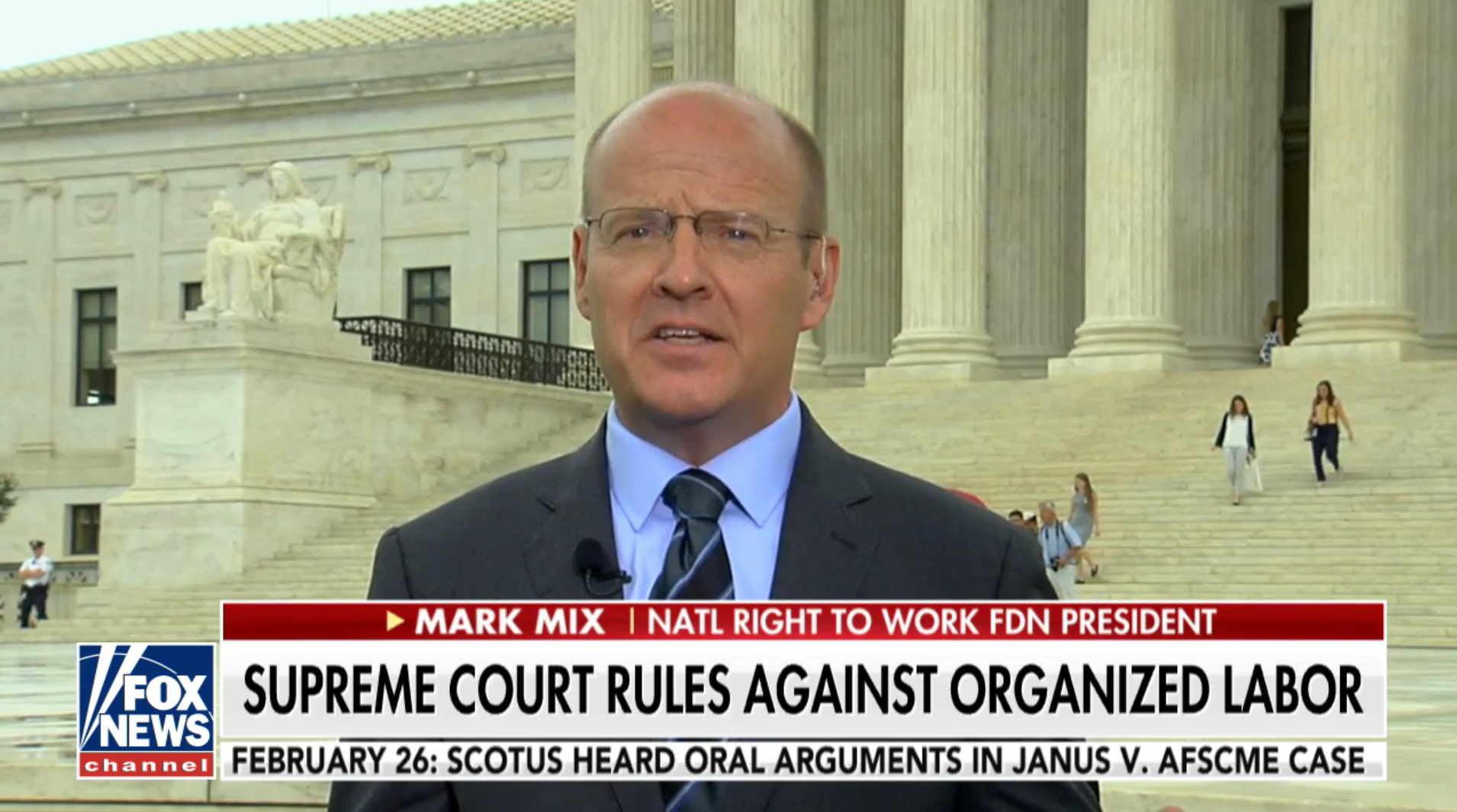
Citing the Foundation-won Janus v. AFSCME First Amendment victory, childcare provider Katherine Miller is asking the High Court to apply the same First Amendment scrutiny to forced union association.
WASHINGTON, D.C. – Katherine Miller runs a small childcare business out of her home in White Salmon, Washington, providing daycare for local children. When she and other childcare providers in the state found themselves forced to associate with the radical Service Employees International Union (SEIU), they turned to the National Right to Work Legal Defense Foundation for legal assistance in defending their rights.
Miller and thousands of other Washington State childcare providers often look after children from low-income families whose childcare costs are subsidized by the Washington State government. Merely because part of her business revenue includes these subsidies, the government claims she is a “public employee” solely for the purposes of union representation. As a result, Washington granted SEIU the power to force her under their union monopoly bargaining scheme and dictate the terms of how she runs her home-based business.
Faced with being forced under an SEIU monopoly against her will, Miller, along with another childcare business owner, Cindy Mentele, filed a federal lawsuit with the help of National Right to Work Legal Defense Foundation staff attorneys in 2016. Their lawsuit challenged Washington’s policy as an infringement of their First Amendment right of free association.
“If SEIU bosses and their allies in Washington’s government can coerce a woman who runs a small childcare business in her own home into associating with a union, then there is no legal limit to who can be forced to accept a government-appointed ‘representative’ to speak to and lobby the government for them,” observed National Right to Work Foundation President Mark Mix.
After the frequently overturned Ninth Circuit Court of Appeals decided against her in February, Miller and her Foundation staff attorneys filed a petition asking the U.S. Supreme Court to take the case. Mentele, sick of waiting for her First Amendment rights to be protected by the courts and her state government, has since stopped accepting children who are in thestate’s low-income subsidy program.
“The ugly message that the State of Washington’s current law sends is: If you want your freedom of association protected, your business will need to discriminate against children from low-income families,” added Mix.
The petition asks the court to hold government-mandated forced “representation” to the same standard that led the Supreme Court to find in the landmark 2018 Janus v. AFSCME decision that forced union fees violate the First Amendment. In that ruling, the Supreme Court also held that government-granted union monopoly bargaining power over public employees is “a significant impingement on associational freedoms that would not be tolerated in other contexts.”
In this case, Miller maintains that Washington’s policy breaches the First Amendment by forcing her to associate with union officials whose representation she doesn’t want and to which she didn’t consent. Miller’s argument also cites the High Court’s holding in the 2014 Harris v. Quinn case, which invalidated forced union fees for similar home-based care providers on the grounds that they are not full-fledged “public employees.”
The petition argues that finding, in combination with the Supreme Court’s observation in Janus regarding forced association in “other contexts,” warrants Supreme Court review.
Foundation staff attorneys successfully argued and briefed both the Janus and Harris cases at the Supreme Court. In both cases the Supreme Court applied a heightened level of “exacting” First Amendment scrutiny to the government-imposed forced dues, which is what Miller asks the Court to apply in her case challenging forced association with a union.
“Based on misinterpretations of not only Janus, but also earlier Foundation-won Supreme Court precedents, courts across the country have looked the other way as union bosses and their allies in government have come up with increasingly outrageous schemes to force individuals under union monopolies against their will,” said Mix. “Forcing individuals under union boss representation against their will is at the core of all of Big Labor’s coercive powers, and it is time for the Supreme Court to step in and acknowledge that government-appointed representation is not compatible with First Amendment freedom of association.”


